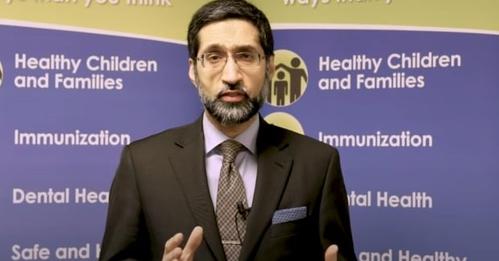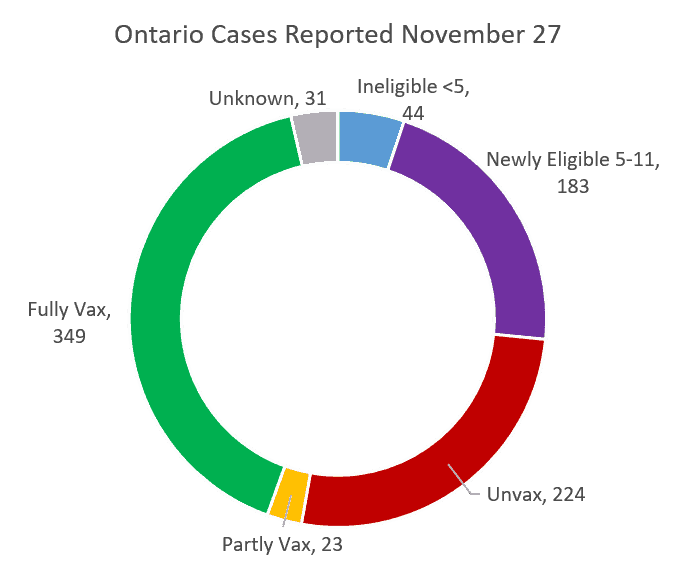Concentrate on kids, unvaccinated before talking about booster shots: Niagara Region’s top doc
Published December 2, 2021 at 11:03 am

Niagara Regional Health’s top doctor says focusing on booster shots for people already who are already fully-vaccinated (two doses) shifts the attention away from the best way of stopping the spread of COVID-19.
“A focus on boosters would be taking our eye off the ball,” said Niagara Regional Public Health’s acting Medical Officer of Health on a November 27 Twitter post. “Most COVID-19 is spreading in (the) unvaxxed. Boosters will do nothing to stop this. In fact, it will distract us from this.”
He added that “Most fully vaxxed have strong, persistent protection. Boosters can only help a little more.”
He said the problem is that fully vaccinated residents getting a booster might see their protection go up from 75 per cent to 90 percent whereas unvaccinated people getting their shot go from zero per cent to 90 per cent.
Using November 27’s new COVID-19 cases numbers, he pointed out, “Say 75 per cent of 5-11 year olds get vaccinated to 90 per cent protection, (that’s) 124 fewer cases in Ontario today. Get half of the 12 per cent unvaccinated people in society (fully) vaxxed, that’s 101 fewer cases today.”
Giving fully-vaccinated people a booster at just 20 per cent more protection would only 52 fewer cases, he suggested. “(That’s) the (smallest) benefit.”
Rather than worry about booster shots, Hirji said, medical health units should be concentrating on the children five to 11 years old and the unvaccinated where there would be the most benefit all around.
The fact that North America is vaccine-rich while many overseas countries and continents, particular Africa, are not only exacerbates the situation. “We hog vaccines the developing world needs. The Omicron variant is a result of (North America) hogging vaccines.”
If he could prioritize vaccinations, Hirji said, number one would be children five to 11 years old – “the highest risk” group. After that, it would be the countries that aren’t vaccine-rich. “The pandemic ends only when the world is vaxxed.”
And finally, he says, focus on convincing the unvaccinated to get their shots.
To Hirji’s thinking, once that is accomplished, then North Americans can worry about boosters.
Below are the November 27 numbers that Hirji was using in his assessment.







